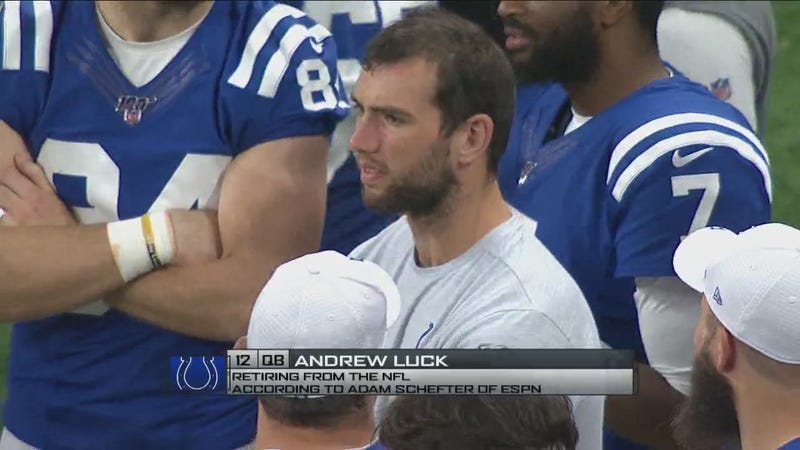The Sudden Retirement of Andrew Luck: A Reflection on NFL’s Physical Toll
A few days ago, the sports world was rocked by the unexpected retirement of Andrew Luck, the 29-year-old starting quarterback for the Indianapolis Colts. Luck’s decision to step away from the game sent shockwaves through the NFL community, leaving fans and analysts alike grappling with the implications of his choice. When Luck entered the league as the number one overall pick, he was heralded as a generational talent, poised to fill the shoes of the legendary Peyton Manning and lead the Colts back to playoff glory. However, his early retirement serves as a poignant reminder of the severe physical toll that professional football exacts on its players.
The Weight of Injuries
Luck’s career was marred by a series of injuries that began early on, largely due to the Colts’ inability to provide him with a competent offensive line. This oversight allowed unblocked defenders to deliver punishing hits, leading to a troubling injury history that would ultimately influence his decision to retire. The physical demands of the game are immense, and for quarterbacks like Luck, the constant threat of injury looms large. With a Stanford degree and a substantial financial cushion from his NFL career, Luck’s choice to prioritize his health over the game he loves seems increasingly rational.
The Fans’ Reaction
Despite the rationale behind Luck’s decision, the reaction from Colts fans was mixed. As he walked off the field for the last time, he was met with boos from a crowd that seemed unable to comprehend the gravity of his situation. This moment highlights a broader issue within sports culture: the expectation that athletes should endure pain and sacrifice their well-being for the sake of the game and its fans. Luck’s retirement challenges this narrative, prompting a necessary conversation about the responsibilities of both players and fans in understanding the sacrifices made on the field.
The Brutality of Football
The physicality of football is not limited to quarterbacks; it permeates every position on the field. Running backs, for instance, have an average career shelf life of just three years. This brevity is largely due to the relentless punishment they endure, often being tackled by 200-350 pound defenders multiple times each game. The cumulative effect of these hits can lead to debilitating injuries that diminish a player’s strength and speed—two critical attributes for success in that position.
Rob Gronkowski, the former tight end for the New England Patriots, recently shared his own struggles with injuries, revealing that he had to have a liter of blood drained from his quad following a hit in the Super Bowl. Gronkowski’s experience is emblematic of the sacrifices many players make to compete at the highest level. Despite their immense talent and contributions to the game, the physical cost can be staggering.
The Rising Concerns
The growing awareness of injuries in football extends beyond individual players. Reports of concussions have surged, and the discovery of Chronic Traumatic Encephalopathy (CTE) has raised alarms about the long-term effects of repeated head trauma. These issues have led to a decline in youth participation in tackle football, as parents become increasingly wary of the risks involved. The future of one of America’s most beloved sports hangs in the balance as concerns about player safety continue to mount.
The Broader Implications
Luck’s retirement is not just a personal decision; it reflects a larger trend in the NFL and sports culture as a whole. As more players prioritize their health and well-being over the demands of the game, the league may need to reassess its approach to player safety. The narrative surrounding football must evolve to acknowledge the sacrifices players make and the importance of their long-term health.
In a sport where the thrill of competition often overshadows the risks involved, Andrew Luck’s decision serves as a crucial reminder that health should always come first. As fans, we must learn to appreciate the human side of the athletes we idolize, recognizing that their well-being is paramount, even if it means stepping away from the game we love.
